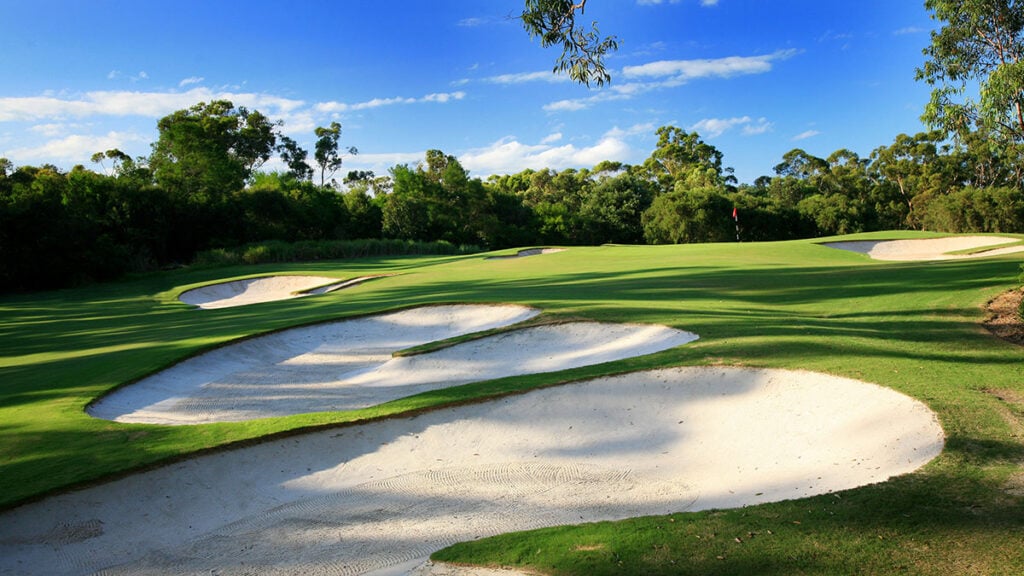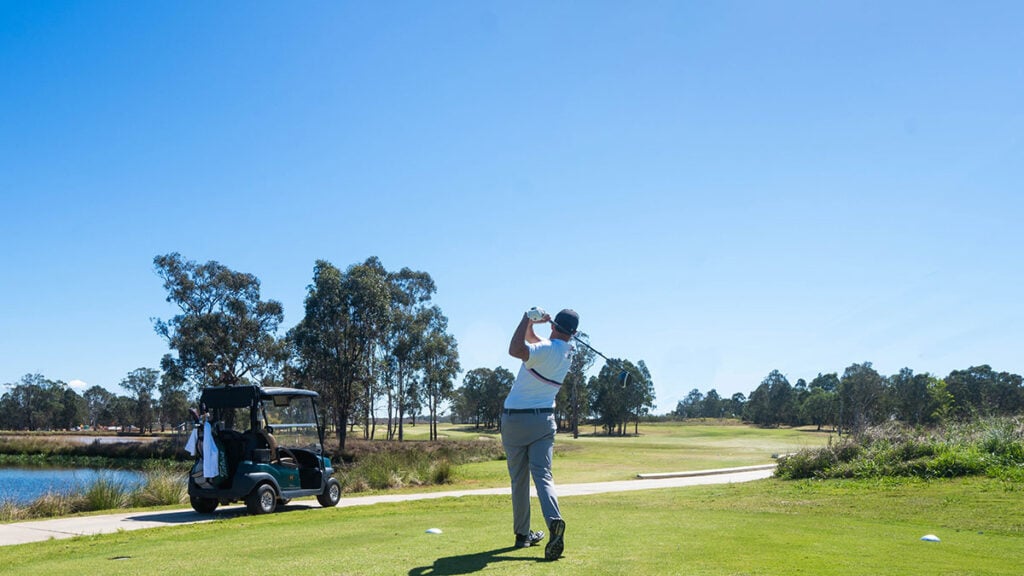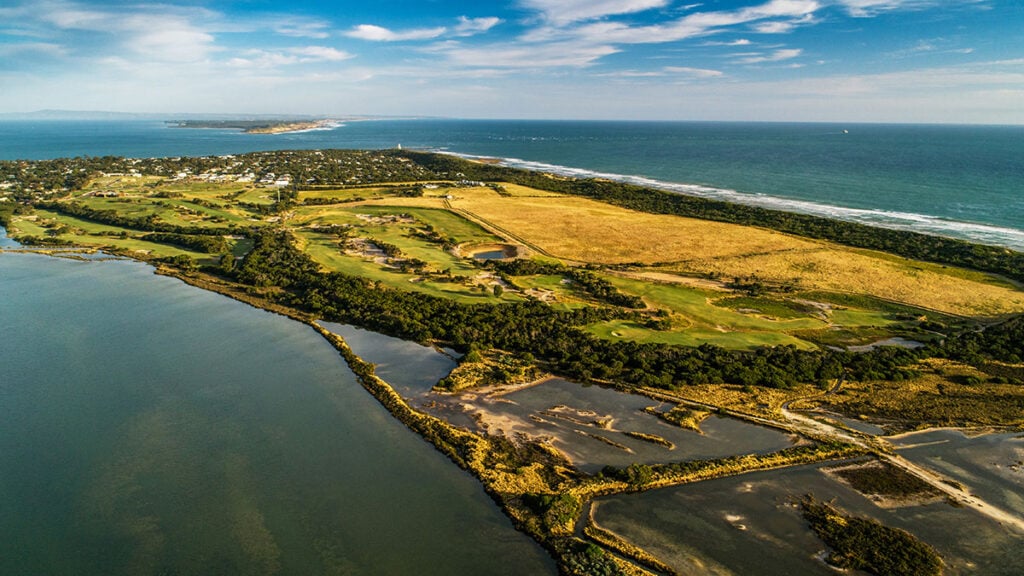The incredible golf courses in south-eastern Melbourne will soon benefit from a new pipeline delivering recycled water that will provide a climate-resilient source of water.
Victoria’s Minister for Water Lisa Neville announced that $24.8 million from the Victorian Budget 2022-2023 will be allocated to the Dingley Recycled Water Scheme.
The new 42-kilometre pipeline will deliver recycled water to the Kingston, Monash and Bayside communities, which are home to the Melbourne Sandbelt.
The project will unlock 1,800 megalitres of recycled water each year, enough to fill Albert Park Lake more than two-and-a-half times, and it will also service local parks, sports ovals, laundromats, market gardens and nurseries in the region.
Once construction is complete, the project will support international golf tourism which generates 240 jobs and it is set to generate $92 million for the local economy.
Investing in recycled water infrastructure allows golf courses to remain green during dry spells, as well as opening up new horticulture business opportunities and tourism, and providing the community with quality public open space all year round.
Golf Australia chief executive James Sutherland described the announcement as a great win for golf.
“The Australian golf industry recognises that environmental issues will increasingly become more relevant to the success and well-being of the game, and initiatives like this are only going to make the future of our sport brighter,” Sutherland said.
“There are some incredible facilities that are going to reap benefit including the Melbourne Sandbelt clubs but also some outstanding public facilities such as Sandy Golf Links [pictured] and Cheltenham Golf Club.
“Both those facilities are at the forefront of a rapid rise in golf participation over the last two years which has resulted in a 30 percent uplift nationally. This project will help them maintain that growth and continue to welcome newcomers to our game.
“Likewise, the Melbourne Sandbelt is home to some of the world’s best golf courses that attracts visitors from around the world, both to play and attend major events like the Australian Open and the Presidents Cup.”
One such club that will benefit from the scheme is Huntingdale Golf Club, and general manager Alex McGillivray said he was delighted that the project was finalised after many proposals across the past 30 years.
“The recycled water is providing security for both public and private courses that are impacted by this project for the foreseeable future. Especially in a time of climate change, it helps support our green spaces that will be a valuable benefit to those clubs that provide significant benefits to the local economies with over 630 staff,” McGillivray said.
“It’s been a lot of work with a lot of people involved. Past and present managers of clubs, MPs in the region and especially South East Water who have championed the project.
“For us at Huntingdale with the proposed new course, the new timing could not be better to ensure our design incorporates our water needs into the future. Nearly all Sandbelt clubs have invested heavily in their assets in recent times so it shows that the clubs are investing heavily in the region.
“The courses are havens for native vegetation and indigenous species. This will mean that even in times of drought we will be able to survive.”
Minister Neville said she was delighted to announce the initiative to improve water security, liveability, and waterway health.
“Using more recycled water responds to the needs of our growing population sustainability by delivering green public spaces all year round without impacting our drinking water supply,” Neville said.
“Those who remember the millennium drought in the 2000s will know the impact on businesses, parks and sporting fields and communities – this initiative will provide a rainfall independent water supply.”




